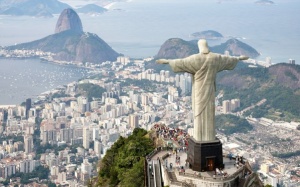WTTC 2014: Brazil set for FIFA World Cup 2014 boost

Brazil’s tourism sector will enjoy a significant boost during the FIFA 2014 World Cup year according to the World Travel & Tourism Council, which has unveiled its Economic Impact 2014 report for the country.
WTTC is the global authority on the economic and social impact of the tourism industry.
The Economic Impact Report 2014 for Brazil shows that tourism grew its total contribution to the Brazilian economy by 3.4 per cent in 2013 and is predicted to grow its contribution by a further 5.2 per cent during this World Cup year and outperform the Brazilian economy by 3.6 per cent.
Domestic tourism makes up 95 per cent of the sector’s contribution to the Brazilian economy.
WTTC president David Scowsill said the World Cup is expected to bring a net positive result: “Brazilians tend to holiday at home and so are not expected to travel abroad in big numbers to avoid any disruption from the event.
“International visitors coming for the World Cup will help to open up the country to a new global audience.”
Brazil has recently made moves towards eliminating visas for short haul trips for Mexican nationals with passports.
Scowsill added measures like this will boost tourism further but he is encouraging the Brazilian Government to be even more ambitious.
“Brazil is recognising the positive benefits which Travel & Tourism can bring in terms of wealth creation to the country.
“Eliminating visas encourages more people to visit, increases tourism receipts and stimulates jobs.
“We would recommend that Brazil expands further its visa free approach across the region, alongside bringing in electronic visas to make it simpler and quicker to enter from other countries.”
Scowsill is also recommending that the country improves its airport infrastructure.
He concluded: “Infrastructure improvements have been made for the World Cup but need to be built upon.
“Growth will be significantly inhibited unless there is an improvement in airport infrastructure. Brazil has too few airports.
“Additionally, the Government must intervene over the country’s extraordinarily high taxation on aviation fuel.”

